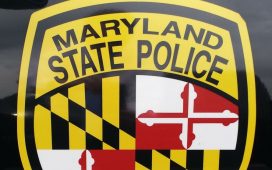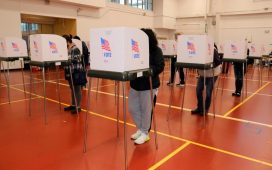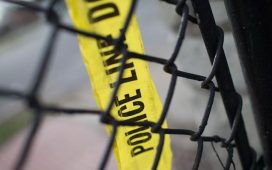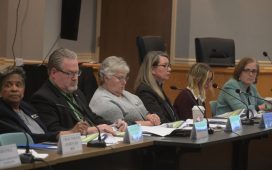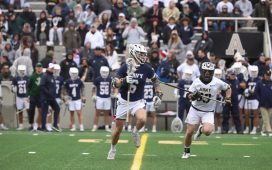The Arkansas Racing Commission has heard its first in two days of evidence related to an appeal from trainer Bob Baffert from his high profile 2020 cases in the state. Baffert is appealing two post-race positive drug tests — one from 2020 Arkansas Derby winner Charlatan and one from stablemate Gamine, who ran at Oaklawn on the same day — as well as a subsequent 15-day suspension issued by stewards for those positives.
The stewards issued their ruling in July 2020 following the races in May. Baffert has said publicly the two positive tests, both for lidocaine, were due to the use of an over-the-counter pain patch by top assistant Jimmy Barnes.
A split sample test performed by the University of Calfornia-Davis lab also revealed the presence of lidocaine metabolites.
At Monday’s hearing, attorneys for Baffert outlined seven reasons why they believe the three rulings (the two disqualifications and trainer suspension) should be dropped, primarily focusing on the actions of the drug testing lab.
At the start of 2020, Truesdail Laboratories in Irvine, Calif., was the facility contracted to perform drug testing for Arkansas racing. In March, Truesdail lost its accreditation for horse racing testing from the International Organization for Standardization (ISO) and as a result, it also lost its accreditation from the Racing Medication and Testing Consortium (RMTC). Some jurisdictions, including Arkansas, could no longer legally send their samples to Truesdail without those accreditations.
Truesdail decided to subcontract out some of its work from affected jurisdictions to Industrial Laboratories, which had maintained all the required accreditations. Baffert’s attorneys maintain that the terms of the commission’s contract with Truesdail doesn’t permit subcontracting for drug testing, although the commission disputes this. Dr. Anthony Fontana, technical services manager at Truesdail, said it’s actually quite common for one lab to subcontract out to another under various circumstances, such as equipment failure or other logistical issues.
Because of the lab shuffle, post-race samples from Arkansas Derby weekend were sent to Truesdail, which checked them, logged them into the lab’s computer system. From there, it seems a number of mistakes were made. Testimony from Truesdail project manager Julie Hagihara revealed that the blood and urine samples from Charlatan, though correctly identified as coming from a colt at the time of collection, were logged by Truesdail as coming from a gelding. Hagihara pointed out that a horse’s gender is not considered to be relevant for the purposes of testing for lidocaine.
The samples from Charlatan and Gamine were taken out of the cooler that transported them from the track to Truesdail and put in different coolers for the trip to Industrial – which Baffert’s attorneys said was done without the proper paperwork validating the chain of custody.
Representatives of both Industrial and UC-Davis indicated the samples they received were still in the original containers with the red tape seals intact. Baffert attorney Craig Robertson drew several witnesses’ attention to a case involving a betamethasone overage by Steve Hobby at the same meet which he says was dismissed in part because the stewards had chain of custody concerns when Truesdail repackaged samples before sending on them to Industrial for testing.
But Dr. Joseph Lokanc, commission veterinarian for the commission, remembered that there was more to the chain of custody question in that case.
“I thought the defect was, when they checked it in, the samples were not cool, there were things missing and as a result they didn’t have the chain of custody on that,” Lokanc recalled.
About two weeks after the race, Truesdail officials erroneously told the racing commission that all samples from the Arkansas Derby card were clear. Several days later, Truesdail contacted the commission to notify them of the mistake.
Hagihara signed the original paperwork certifying the positive test, even though she was employed by a different laboratory than the one that conducted the testing – which Baffert’s legal team believes invalidates the certification.
Truesdail’s accreditation woes in 2020 were not its first; in 2015, the lab was the subject of a quality check by the RMTC after the Indiana Horse Racing Commission voiced concerns over seven missed drug overages revealed during an audit. It has now regained ISO accreditation but not its RMTC accreditation. RMTC lifted its accreditation suspension of the lab in August 2020, but suspended it again in February of this year. Industrial now has a direct contract to do drug testing for the Arkansas commission.
“This current RMTC suspension had nothing to do with our technical ability or faulty systems,” said Fontana. “RMTC itself is not an internationally-recognized accreditation body. They are an advisory board for the industry that offers a form of accreditation but it’s not internationally-recognized.”
Fontana currently serves on the RMTC’s Scientific Advisory Committee, according to Truesdail’s website.
Split samples that were taken on race day were tested by the University of California-Davis, which actually detected a higher concentration of lidocaine metabolites than Industrial had. Testimony revealed that other horses during the Oaklawn meet also had levels of lidocaine in their post-race samples, although the others did not exceed the regulatory threshold to qualify as violations.
Baffert is not scheduled to formally testify at the appeals hearing, which will continue Tuesday, but was present at the proceedings in case he needed to field questions from commissioners.
New to the Paulick Report? Click here to sign up for our daily email newsletter to keep up on this and other stories happening in the Thoroughbred industry.
Copyright © 2021 Paulick Report.
